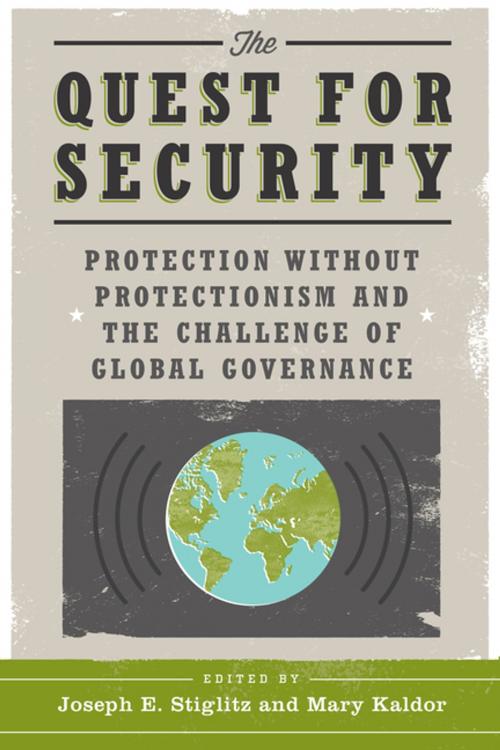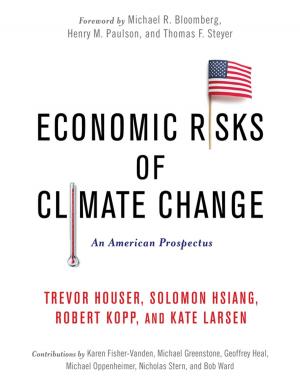The Quest for Security
Protection Without Protectionism and the Challenge of Global Governance
Nonfiction, Social & Cultural Studies, Political Science, International, International Security, Business & Finance| Author: | ISBN: | 9780231527651 | |
| Publisher: | Columbia University Press | Publication: | April 23, 2013 |
| Imprint: | Columbia University Press | Language: | English |
| Author: | |
| ISBN: | 9780231527651 |
| Publisher: | Columbia University Press |
| Publication: | April 23, 2013 |
| Imprint: | Columbia University Press |
| Language: | English |
The essays in this collection boldly confront the quest for security arising from the social, economic, environmental, and political crises and transformations of our century. Joseph E. Stiglitz and Mary Kaldor begin with an expansive, balanced analysis of the global landscape and the factors contributing to the growth of insecurity. Whereas earlier studies have touched on how globalization has increased economic insecurity and how geopolitical changes may have contributed to military insecurity, this volume looks for some common threads: in a globalized world without a global government, with a system of global governance not up to the task, how do we achieve security without looking inward and stepping back from globalization?
In each of their areas of expertise, contributors seek answers to questions about how we achieve protection of those people who are most insecure without resorting to economic, military, or mafia protectionism. Some have suggested that the turmoil in the Eurozone "proves" the deficiencies in the welfare state. This book argues that the superior performance of Scandinavian countries arises from their superior systems of social protection, which allow their citizens to undertake greater risk and more actively participate in globalization. Some suggest that we can address terrorism or transnational crimes through the strengthening of borders or long-distance wars. This book develops the proposition that such approaches have the opposite effect and that only through spreading the human security experienced in well-ordered societies can these dangers be managed.
This book also examines how these global changes play out, not only in the relations among countries and the management of globalization, but at every level of our society, especially in our cities. It explores the potential for cities to ensure personal security, promote political participation, and protect the environment in the face of increasing urbanization.
The essays in this collection boldly confront the quest for security arising from the social, economic, environmental, and political crises and transformations of our century. Joseph E. Stiglitz and Mary Kaldor begin with an expansive, balanced analysis of the global landscape and the factors contributing to the growth of insecurity. Whereas earlier studies have touched on how globalization has increased economic insecurity and how geopolitical changes may have contributed to military insecurity, this volume looks for some common threads: in a globalized world without a global government, with a system of global governance not up to the task, how do we achieve security without looking inward and stepping back from globalization?
In each of their areas of expertise, contributors seek answers to questions about how we achieve protection of those people who are most insecure without resorting to economic, military, or mafia protectionism. Some have suggested that the turmoil in the Eurozone "proves" the deficiencies in the welfare state. This book argues that the superior performance of Scandinavian countries arises from their superior systems of social protection, which allow their citizens to undertake greater risk and more actively participate in globalization. Some suggest that we can address terrorism or transnational crimes through the strengthening of borders or long-distance wars. This book develops the proposition that such approaches have the opposite effect and that only through spreading the human security experienced in well-ordered societies can these dangers be managed.
This book also examines how these global changes play out, not only in the relations among countries and the management of globalization, but at every level of our society, especially in our cities. It explores the potential for cities to ensure personal security, promote political participation, and protect the environment in the face of increasing urbanization.















